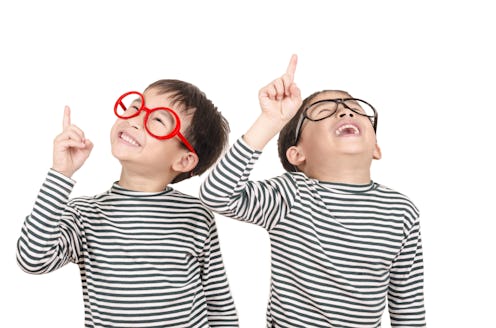Life
When Identical Twins Don't Develop Identically

Sure, some of your girlfriends run that extra mile that works wonders for toned calves. But according to the New York Times, new research from Finland shows that identical twins who shared the exact same sports activities growing up, but worked out differently as adults, exhibited noticeably different body and brain development. So regardless of the excess of excuses you’ve used to validate that House of Cards binge, it appears you should be making time for the gym after all — snow be damned.
Researches at the University of Jyvaskyla examined “how physical activity level is associated with body composition, glucose homeostasis, and brain morphology in young adult male monozygotic twin pairs.” In layman's terms, they were curious about how our brains and bodies might differ per our respective exercise routines, even in people with similar (or the same) genetic makeup. Over the course of three years, they documented patterns in both physical activity, leisure time, and responsiveness in their subjects’ mind and body.
“Among healthy adult male twins in their mid-30s,” reports the study, “a greater level of physical activity is associated with improved glucose homeostasis and modulation of striatum and prefrontal cortex gray matter volume, independent of genetic background.” Additional benefits included a reduced risk of type 2 diabetes.
So basically, in addition to all of the existing reasons to make time for your workout (increased productivity, more energy, and better orgasms among them), the differences between the "you" who works out, and the "you" who stays at home with Top Ramen and a six-pack are going to be noticeable both mentally and physically. Sorry, guys — science wins this round.
(PRO TIP: Baby steps, gang. Walking never hurt anybody.)
Image: Franky/Fotolia